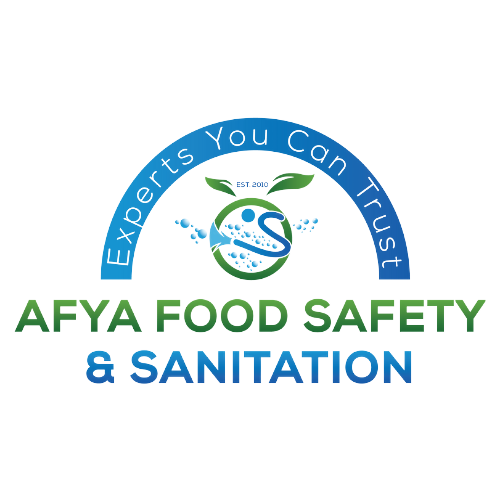
Please Wait For Loading

Please Wait For Loading
Maryland, MD USA
+1 (443) 666-9132
info@afyafoodsafety.com
Opening Hours: 9:00 AM - 5:00 PM
Copyright ©Afya Food Safety all rights reserved.
You can also reach us via Phone: +1 443 666 9132 or via Email:info@afyafoodsafety.com
Employee Integrity in Sanitation Compliance: 5 Crucial Pillars for Success
In the dynamic business landscape, ensuring compliance with sanitation regulations is a legal obligation and fundamental to maintaining public health and safety. Within this framework, the role of employees in upholding sanitation standards cannot be overstated. Employee integrity is the linchpin for successful sanitation compliance, fostering a culture of responsibility and accountability within the organization. In this blog post, we will delve into the significance of employee integrity in sanitation compliance and explore strategies for its effective implementation.
Understanding Sanitation Compliance
To preserve hygienic conditions in businesses, sanitation compliance and following the rules and guidelines established by regional, national, and worldwide agencies are mandatory. Whether in the manufacturing, healthcare, or food and beverage industries, compliance is essential to stop the spread of diseases, safeguard customers, and uphold a company’s reputation. A non-compliant company may get fines, legal repercussions, and harm to its brand.
The Role of Employee Integrity in Sanitation Compliance
Employee integrity forms the bedrock of a successful sanitation compliance program. It goes beyond merely following guidelines; it encompasses a commitment to ethical behavior, honesty, and a sense of responsibility towards the community and colleagues. When employees embrace integrity, they contribute to a positive workplace culture, reducing the risk of sanitation breaches and fostering a shared commitment to compliance. The following are five ways food manufacturing companies can uphold employee integrity in sanitation compliance:
It is crucial to make sure staff members are aware of sanitary regulations. Businesses should fund extensive training initiatives that teach staff members the value of adhering to rules and specific laws that apply to their jobs and the possible repercussions of breaking those laws. Employees can make judgments in their daily activities because of this information, which lowers the possibility of unintentional infractions.
A culture of accountability is crucial for maintaining sanitation compliance. When employees are responsible for their actions and the organization, they are more likely to adhere to sanitation standards. Employers can foster this culture by encouraging open communication, setting clear expectations, and implementing reporting mechanisms for potential compliance issues.
Leaders within the organization play a pivotal role in shaping the culture of integrity. When executives and managers consistently demonstrate a commitment to compliance and ethical behavior, it sets a precedent for the entire workforce. Leadership by example reinforces the importance of integrity, inspiring employees to follow suit in their daily tasks.
Regular audits and inspections are essential for identifying and rectifying potential compliance gaps. These evaluations serve as a preventative measure and demonstrate to the employees that adherence to sanitation standards is a priority. Knowing their work is subject to scrutiny reinforces the need for diligence and integrity in their tasks.
Rewarding staff members who demonstrate a dedication to sanitation compliance is a potent incentive. This acknowledgment can be verbal compliments or material goods. Organizations can encourage others to follow suit and emphasize the value of honesty by showcasing their compliance success stories.
Conclusion
Integrity among employees is the foundation of sanitation compliance and is essential to the long-term viability of any business. Businesses may establish a work environment where employees are compliant and actively involved in upholding high sanitation standards by making educational investments, encouraging an environment of accountability, setting an example, carrying out frequent audits, and recognizing and rewarding integrity. Employee integrity in sanitation compliance in an increasingly linked world cannot be emphasized enough; it is essential to preserving public health, upholding legal compliance, and developing a reliable brand.
Related Posts
Categories
Antibiotic Resistance: A Growing Threat to Food Safety
April 17, 2025Understanding Cross-Contamination: A Major Food Safety Risk
March 31, 2025Calender